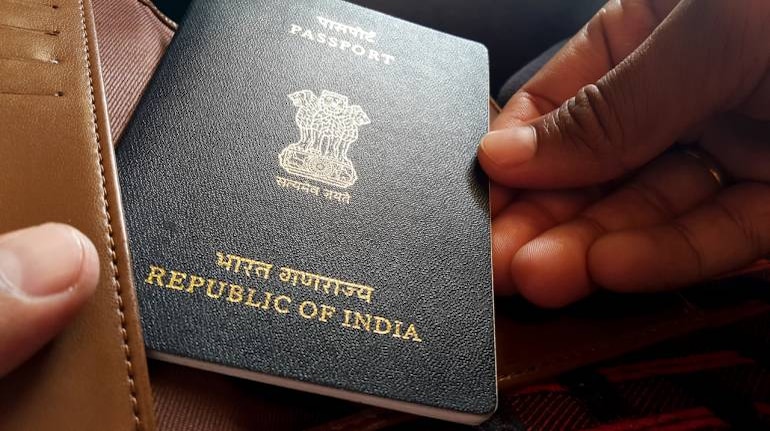



More than 600,000 Indians gave up their citizenship during the last five years, Union Minister of State for Home Nityanand Rai informed the Lok Sabha. While 133,000 Indians gave up citizenship in 2017, it was 134,000 in 2018, 144,000 in 2019, 85,248 in 2020 and 111,000 in 2021 until 30 September. The dip during 2020 was, without any doubt, because of the pandemic. What entails in revoking citizenship is the surrender of the Indian passport as mandated by the Indian authorities since India does not allow dual citizenship unlike her co-subcontinental countries Pakistan and Bangladesh.
While we do not have an idea about the reasons for the revocation of citizenship, the fact remains that these erstwhile Indian citizens, across the globe, have opted for citizenship of different countries (and that includes the passport of the country concerned) where they have been residents for varying periods. For all practical purposes, looked at from the lens of India’s Ministry of Foreign Affairs, these former Indian citizens are “foreigners”. It may not be out of place to point out here that Padma Bhushan awardee and former ambassador to the US, Abid Hussain, had famously remarked that Indians have their heart in India, but their money in Swiss banks.
In general parlance civil society, journalists, and even some politicians and government officials refer to any “Indian” overseas as Non-Resident Indian (NRI). That is incorrect. Only those who hold an Indian passport and have been away from the country for at least 182 days are truly categorised as NRIs. Not all Indian citizens or former Indian citizens living overseas having revoked their Indian citizenship automatically become NRIs. This nomenclature, NRIs, has been misused or at least mis-utilised quite consistently.
On the other hand, even the use of the concept of “Diaspora” in blanket terms is also quite misplaced and used indiscriminately and inappropriately. In the earlier and original way, diaspora referred, in general, to the dispersal of the Jews among the Gentiles in different parts of the world. The Jews, in such dispersal, were seeking a homeland and the desire was to get over to and congregate in such a homeland.
In 1991 the Zoryan Institute, in Cambridge, Massachusetts, US, launched the journal Diaspora. Subsequent to that, at first gradually, and then in a bandwagon effect, almost everyone started using the term Diaspora to refer to any group of people, from any country of origin and irrespective of their nationality and citizenship, in blanket terms. And now, here we are, employing the term effortlessly and in quite a facile manner, to those who have voluntarily revoked their citizenship, surrendered their passport, and said good bye to the Indian homeland! Inherent in this action is the fact that a new and totally different homeland has thus been sought. In a way this is the reverse of what was originally embedded in the concept of diaspora wherein the dispersed lot were keen to get over to their homeland.
Another nomenclature used by the authorities in India too is quite misleading; and that is Overseas Citizenship of India (OCIs). This refers to people who have relinquished their Indian citizenship, surrendered their passports, obtained the citizenship of the country where they have been residing but seek certain privileges in India. They request and apply for the OCI card on the basis of having been erstwhile citizens of India.
On obtaining the OCI card, they are allowed certain privileges like multiple-entry life-long visa. Also, they can own assets and property, but not agricultural land or plantations; however, they can continue to hold such property if they held it before giving up Indian citizenship. The OCIs cannot vote or run for a public office or contest an election in India.
The Nobel Laureates Har Gobind Khorana and Subrahmanyan Chandrasekhar were naturalised citizens of the US but could not have obtained the OCI card as the facility did not exist during their lifetime. However, the other Nobel Laureate, Venkatraman Ramakrishnan, can avail of the OCI card, if he so desires (and may actually have obtained one) as he is a British-American dual citizen of Indian origin. Another Nobel Laureate, Amartya Sen, currently an academic at Harvard University, has taught both in England and the US for a number of years but has retained his Indian passport and thus his Indian citizenship. He is indeed an NRI.
The nomenclature Overseas Citizenship of India is quite misleading because OCIs are not at all citizens of India; they are overseas, fine, but not even NRIs as they do not possess Indian passports. It beats one as to how they can be “overseas citizens of India”? The nomenclature can be modified to make it more appropriate by referring to such people as Overseas Citizens of Indian Origin (OCIOs) to clear the muddle. Anyone listening?
M A Kalam, a social anthropologist, is Visiting Professor, Centre for Economic and Social Studies, Hyderabad.
Views are personal and do not represent the stand of this publication.
Discover the latest Business News, Sensex, and Nifty updates. Obtain Personal Finance insights, tax queries, and expert opinions on Moneycontrol or download the Moneycontrol App to stay updated!
Find the best of Al News in one place, specially curated for you every weekend.
Stay on top of the latest tech trends and biggest startup news.